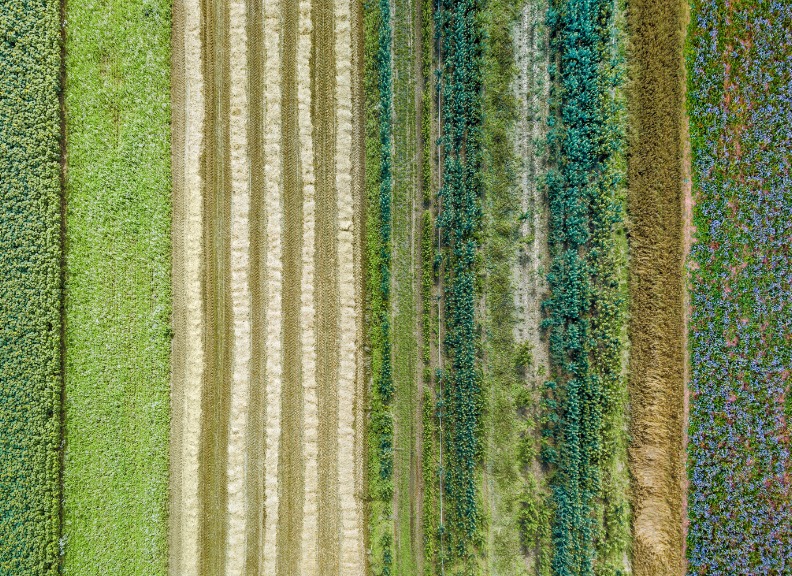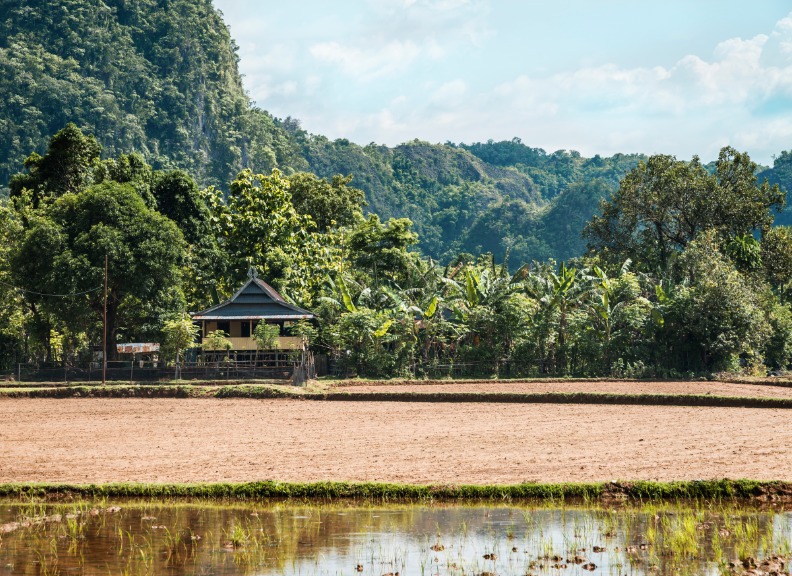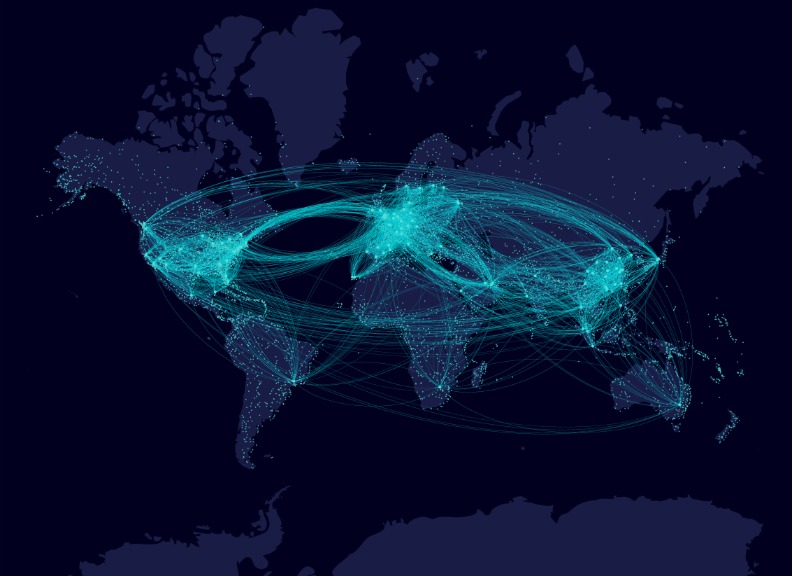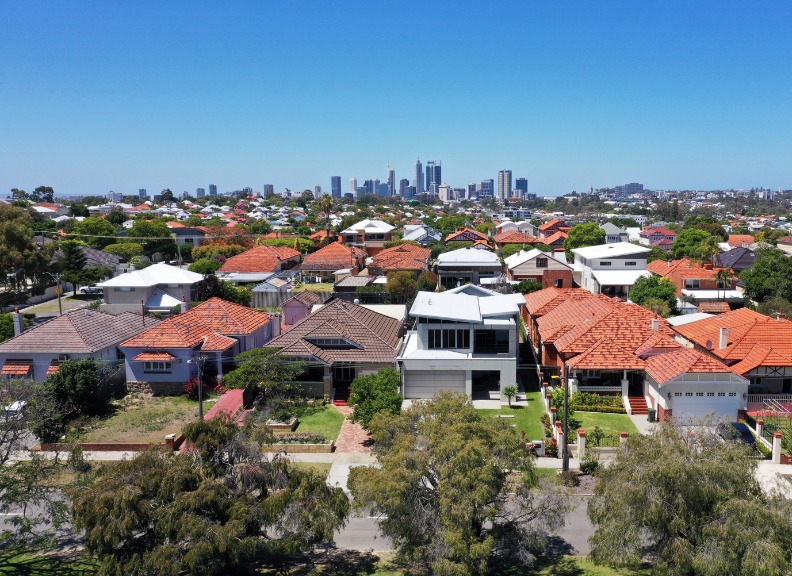Future Regions Lab
Regions are crucial and complex units; a respective region emerging from a distinct interplay of geographic, economic, political, cultural and ecological factors.
The regional unit is useful in denoting governance or administrative jurisdictions, understanding cultural identity, economic and urban planning and development, resource management and care, and enabling collaboration and cooperation.
The Future Regions Lab adopts a broad interpretation of regions, specialising in both regional Australia, Australia’s regions (which may include cities) and regions in the Asia-Pacific. It seeks to understand inequality within and between these regions, with attention to industry, communities or groups in the socio-economic or geographic periphery.
The Future Regions Lab has two aims:
- To understand the contemporary challenges and characteristics of regions, particularly against the backdrop of global market restructuring, growing socio-economic inequity and disadvantage, urbanisation and population pressures, and ecological crises
- To provide evidence-based findings to inform regional strategic decision-making and policy strengthening sustainable industry and community futures
The Future Regions Lab focuses on the following research and policy areas:
- Technology advancements and innovation to improve labour productivity, business opportunities, industrial transitions and the attractiveness of living in a specific region
- Industry and business opportunities, challenges and responses to recent global shocks reconfiguring trade and production relationships
- Ecological crises and the shift toward the greening of and resource efficiency in industry and urban areas
- Urban and regional structural inequality and disadvantage in vulnerable socio-economic communities to strengthen sustainable development outcomes and goals
Projects
WAterways
WAterways
Western Australia’s rivers, streams, lakes, estuaries, floodplains, and wetlands comprise a system of ancient waterways that have given life to some of the world’s most distinct and diverse ecosystems. But, urban and industrial development of the state over the last two centuries have led to multiple ecological crises and the degradation of many water bodies, which are further complicated by increasing societal demands and a drying climate.
Supported by the Feilman Foundation, the WAterways Program aims to leave a legacy of reconnected communities and waterways. It will do so by collaboratively tackling the urgent and complex ecological challenges of Western Australian waterways and enhancing community long-term health and well-being in a shared journey of projects, events and initiatives to increase knowledge, understanding, commitment and impact.
To learn more, please visit WAterways Western Australia.
SustainaMineForward
SustainaMineForward
Interest in green technologies and energy storage systems has increased under growing recognition of a need for world-wide action on climate change, national concerns on resource security and supply chain vulnerabilities. Globally, government and industry have responded by accelerating technology adoption, strengthening local supply chains and focusing on carbon-zero production.
This project aims to better understand the emerging dynamics of the global mining industry. This includes the role of junior miners in industry development, the decarbonisation agenda, consumer-led narratives of ‘quality’ and Australia’s shift into upstream production particularly in the processing of critical mineral and battery manufacturing. It is a collaboration between Associate Professor Kirsten Martinus and Dr Adriana Nunez Picado, with support received from the Future Battery Industries Cooperative Research Council.
Innovation in the peripheries
Innovation in the peripheries
This project focuses on understanding and conceptualising the different dynamics and processes associated with innovation by actors in peripheral environments. It is motived by a shared belief that contemporary normative connotations of laggardness, backwardness, dependence, weakness, and disadvantage associated with the word ‘periphery’, are unfounded and misplaced. As such, the project boldly challenges such misconceptions and presumptions, opening a space for more constructive conceptualisations and theorisation.
The project’s central question is not whether innovation occurs in geographic peripheries, but how it occurs in some, and why not in others. It explores how geographic peripherality can be juxtaposed with, and is independent of, other types of peripherality. It examines the social and economic differences between cores and peripheries, distinguishing between peripheries as locations (i.e. places with certain quantifiable attributes situated relative to other places with other attributes) and peripheries as positions in economic, power and network contexts in which agents (not necessarily peripheral themselves) are located. In doing so, it also problematises cores, which are likewise both locations and positions within which agents (not necessarily central themselves) act. The project is a collaboration between Associate Professor Kirsten Martinus (UWA), Professor Johannes Glueckler (Heidelberg University) and Professor Richard Shearmur (McGill University), with funding support received from ARC DECRA Fellowship (grant no. DE170100727).
Rails to prosperity
Rails to prosperity
Better connectivity is a recognised driver of more equal regional economic development, as economic growth tends to occur more easily and rapidly around large urban centres. Rural areas are often ‘left behind’, even though their resource exports – e.g. agriculture – are significant to national wealth. The upgrading of transport and communications networks is thus key in enabling rural areas to sell products competitively.
This project examines impacts of the Trans-Sulawesi railway on adjacent rural communities, specifically vulnerable workers. It is in collaboration with Professor Anu Rammohan (UWA) and the Depart Foreign Affairs and Trade, Partnership for Australian-Indonesia Research (PAIR).
PassionateGrowth: Rural economic diversification, local production and entrepreneurship
PassionateGrowth: Rural economic diversification, local production and entrepreneurship
This project explores the diversification of rural or peri-urban economies. In Australia, these economies can be generally characterised as having many small to medium firms in agriculture and tourism related industries. Economic diversification often emerges through the innovative and entrepreneurial activities of both firm and non-firms – and frequently via a process that taps into human passion.
The project investigates how local innovation and entrepreneurship enhances local production in rural or peri-urban economies. This includes the emergence of experiential agritourism, joint hobbyist/commercial communities of practice, new ways firms create and capture value and alternative agricultural practices, e.g. regenerative agriculture. This project was funded by ARC DECRA Fellowship (grant no. DE170100727) and in part by WA Department of Primary Industries and Regional Development; with Associate Professor Kirsten Martinus having collaborative projects with Professor Jun Suzuki (GRIPS, Tokyo, Japan), Associate Professor Bryan Boruff (UWA), Dr Adriana Nunez Picado (UWA) and Louisa Chalmers.
Beyond borders: Understanding globalisation and regional economies
Beyond borders: Understanding globalisation and regional economies
This project seeks to understand the global connectivity of industry and society using social network analysis to map multinational corporation relations. Specifically, it aims to highlight:
- How the resource (mining and energy) industry has shaped the relations between cities and peripheries,
- The relationship between corporate headquarter locations, industry locations and tax haven,
- The influence of different proximity types (social, institutional, cultural, industry, etc) on firm location and global corporate connectivity,
- The relationship between different industries, particularly to the finance sector,
- Cross-border migration, business, labour and financial flows in the context of national security and policy responses.
The project provides critical insight into how global corporate relations connect with local economies.
The project received previous funding from The University of Western Australia, University of Queensland, ARC Discovery Project (grant no. DP170104359). Current project collaborators are Associate Professor Kirsten Martinus, Associate Professor Thomas Sigler (University of Queensland), Dr Adriana Nunez (UWA) Picado and Anita Herlina (PhD student, UWA).
Structural inequality, employment targets and planning policy
Structural inequality, employment targets and planning policy
Increased urbanisation and spatial inequality across cities have created significant land use challenges in terms of infrastructure, housing and employment provision, particularly in outer suburban or peri-urban areas. Government policy responses often include regional job-housing targets, such as self-sufficiency, self-containment and jobs housing ratios, to inform the level of infrastructure, housing and employment provision which is needed to address job-housing imbalances. How city or state governments decide what is appropriate for different areas is often unclear and simplistic.
This project explores alternative ways of understanding employment distribution across strategic and population-driven job types, and how this might translate to policy and practice in urban planning and economic development.
It is a collaboration between Associate Professor Kirsten Martinus and Professor Sharon Biermann (UWA); with funding support from the Planning and Transport Research Centre (PATREC).
EcoCrisisResponse
EcoCrisisResponse
This project looks broadly at the intersect between regional development, urban planning and ecological crisis in the face of fears regarding the risk of pandemics and climate change, urbanisation and population increases. It seeks to understand the following areas:
- The intersect between ecological crisis, on-going urbanisation and population increases, novel disease emergence and supply chain disruption
- How stakeholder networks influence urban greening and ecosystems recover
The project is particularly focus on the understanding emerging patterns and appropriate policy responses. It is various collaborations between Associate Professor Kirsten Martinus, Dr Natasha Pauli (UWA) and Associate Professor Marit Kragt.
Future@Work
Future@Work
Advancements in technology and social media platforms have enabled new and emerging ways to engage with work and employment. For example, workers in the gig economy are considered self-employed or independent contractors who offer services whenever they choose through digital platforms. Gig workers now offer a range of ride-share, food or grocery delivery, on-line tutoring, graphic design, etc services to clients. Another form of digitally enabled workers are digital nomads who use technology to work remotely so they can travel and live anywhere in the world which has access to the Internet. They are often professionals who do free-lance work but can also work for companies that support their nomadic lifestyle.
Despite the rise of digitally enabled work types, limited research to date has examined how technology is revolutionising employment, the dynamics of such a lifestyle, and the impact of this workforce on land use planning, e.g. employment centres. This project aims to investigate these areas. Current project collaborators are Associate Professor Kirsten Martinus and Associate Professor Thomas Sigler (University of Queensland).
Our team
- Associate Professor Kirsten Martinus
-
Kirsten Martinus is an Associate Professor at the School of Social Sciences, The University of Western Australia. Prior to becoming an academic, she worked as an economic development consultant and Japanese/English interpreter while residing in Australia, USA, Indonesia and Japan.
Her work is interdisciplinary, balancing fundamental research with applied outputs to inform economic development strategic policy and decision making across government. Kirsten’s work examines the (re)distribution of resources (mining, energy, innovation, labour, wealth) across regions, and the socio-economic factors increasing regional competitiveness (productivity/innovation) and mitigating uneven development.
Kirsten has won several large competitive grants for her research including an Australian Research Council Discovery Project and early career fellowship (DECRA). She is a board member for the Australian Academy of Sciences National Committee for Geographical Sciences and Institute of Australian Geographers, and on the editorial boards of Geographical Research, Applied Geography and Global Networks.

- Professor Amanda Davies
-
Professor Amanda Davies is a social scientist with expertise in demography, population geography, and rural and regional development. Her research focuses on examining population growth, distribution, and patterns of demographic change, particularly in response to economic, social, or climatic challenges.
As an applied researcher, Amanda works closely with industry and government to deliver timely and relevant information that informs policy. She is one of Australia's leading public commentators on population and demographic issues. Amanda’s work has been particularly influential in raising awareness about Australia’s declining fertility rate and shaping public policy responses. Through her partnerships with government and industry, Amanda explores the application of emerging and innovative social science methods, with a focus on linking datasets to enable longitudinal or comparative spatial analyses.
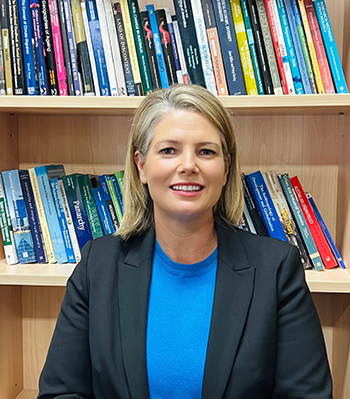
- Anna Costello
-
Anna Costello is a full time staff member of the Future Regions Lab in the School of Social Sciences. She has a Master’s of Urban Design, with a specialisation in Environmental Planning, and a bachelor’s degree of Landscape Architecture, from UWA.
She has developed a number of key research interests throughout her educational experiences, resulting in a passionate understanding of Ecological Urbanism, Biodiversity Sensitive Urban Design, Water Sensitive Urban Design and the enhancement of water-dependent ecosystems, and equality in urban planning, particularly in the delivery of social and affordable housing.
She is enthusiastic to broaden her knowledge of planning to include the challenges and opportunities faced beyond that of the urban realm, and aspires toward a future in which she will help to shape the future of Western Australia.

- Professor Sharon Biermann
-
Sharon Biermann is Professor and Director of the Planning and Transport Research Centre (PATREC), hosted at The University of Western Australia. PATREC is a collaboration between three Western Australian universities and three government departments as well as the Local Government Association. She is responsible for delivering on the PATREC mandate, to conduct collaborative, applied research and teaching in support of policy in the connected spaces of transport and land use planning. Her role includes leading and conducting research projects in the areas of integrated land use and transport futures; smarter personal travel decisions; integrated freight system optimisation; emerging technology; network optimisation and intelligence and transport infrastructure investment risk management.
She has recently established a new program of research in relation to climate action in land use and transport planning. With a PhD in Geography, her specific areas of expertise include: scientific research leadership and management of integrated planning and infrastructure programs, Planning Support Systems and integrated land use and infrastructure planning and modelling.

- Associate Professor Bryan Boruff
-
Bryan Boruff is an environmental geographer and Associate Professor in the UWA School of Agriculture and Environment, the University of Western Australia (UWA). He has expertise in the application of Geographic Information Systems (GIS) and Remote Sensing (RS) technologies to a range of environment management issues.
Over the past decade, Dr Boruff’s collaborations have include research on physical activity and health outcomes, urban vegetation measurement and monitoring, information and communications technology for development, sustainable livelihoods, and renewable energy and agricultural production. These collaborations have resulted in significant contributions to the use of GIS and RS in the fields of population health, planning, international development, and environmental science as well as through the promotion of Geography across a range of multidisciplinary projects.

- Professor Anu Rammohan
-
Anu Rammohan is a Professor of Economics, and Director of International Engagement (Business School) at The University of Western Australia. She is also the Senior Research Fellow at UWA for the Australia Indonesia Centre’s Partnership for Australia Indonesia Research’s (PAIR) program. She led the UWA Australia India Institute from 2018-2022. She is on the Steering panel of the ARCH-India (Australia Research Collaboration-India) and in this capacity has served on selection panels for Australia-India research collaboration grants supported by the Department of Education. Anu currently serves as a member of the Australian Research Council's College of Experts, which oversees Australia’s largest competitive national research grants program. She was previously on the Editorial Board of Economic Record.
Her research is in Development Economics, Health Economics and Agriculture Economics. The focus of her research has been on understanding household vulnerability and socio-economic factors that can influence education differences, maternal and child health outcomes, gender discrimination and food security issues in South and South-East Asia. As such, her research is multidisciplinary and brings an economics lens to research in Public Health, Agriculture and Geography. She has received research funding of over $9 million through competitive research grants from the Australian Research Council, DFAT, Australian Council of International Agriculture Research, Department of Health (WA), and the Australia India Institute. Her research has been presented at numerous invited research seminars and conferences, both nationally and internationally.

- Associate Professor Marit Kragt
-
Associate Professor Marit Kragt is Director of the Centre for Agricultural Economics and Development at UWA. Her research focuses on improving natural resource management decisions in agricultural regions. Her expertise includes climate change mitigation and adaptation in agriculture, adoption of farm management practices, social benefit-cost analysis, and valuation of non-market impacts (e.g. on natural capital).
Marit has a background in environmental science and economics, with 17 years of experience in interdisciplinary research. She was an ARC DECRA Fellow from 2016–2020.

- Associate Professor Thomas Sigler
-
Associate Professor Thomas Sigler (Deputy Head, School of Earth and Environmental Sciences at The University of Queensland) is an urban and economic geographer with a longstanding interest in how globalisation shapes cities and regions. His projects focus on the impacts of international firm activity on urban form and structure, in addition to how corporate activities connect disparate places through networks of knowledge.
His collaboration with Associate Professor Kirsten Martinus and Professor Matthew Tonts has spanned more than a decade, leading to several Perth-related projects and studies. His current work focuses primarily on the impacts of Airbnb and other short-term rental platforms on Australian cities. He has published more than 100 scientific papers, and serves on the editorial boards of four international journals.

- La Ode Rifaldi Nedan Prakasa
-
La Ode Rifaldi Nedan Prakasa (Ode) is a Research Assistant at the Future Regions Lab, School of Social Sciences, UWA. He has a Master of Strategic Communication by coursework and research, from UWA, and is an awardee of a full-ride scholarship from the Indonesia Endowment Fund for Education (LPDP), from the Indonesian Ministry of Finance.
He holds a Bachelor’s degree in International Relations from President University, Indonesia, and was honoured with the Most Outstanding Student Award in 2020. With four years of professional experience in the communications industry, he has worked as a communications consultant and officer across a number of different sectors.
His interdisciplinary research delves into global AI governance, examining emerging AI technologies such as algorithmic recommendation, deep synthesis, and AI-driven brain-computer interfaces. His dissertation explores China’s Global AI Governance Initiative, the EU AI Act and the US AI Bill of Rights as case studies, analysing their implications for international regulation. He is also expanding his work to assess Australia and Indonesia’s AI policy landscape, bridging global and regional AI governance frameworks.
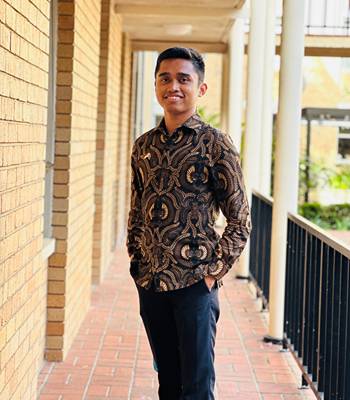
PhD students
- Anita Herlina
-
Anita Herlina is a PhD student at the School of Social Sciences of The University of Western Australia. She received a scholarship from the Indonesia Endowment Fund for Education, Ministry of Finance of Indonesia.
Anita has 20 years experience in Indonesian immigration and policy, as a lecturer and immigration officer in Indonesia. She has researched various areas of migration such as Indonesia-Australia immigration cooperation, Indonesia's migrant workers, refugees, transnational crimes particularly how immigration policy affects human security.
Anita is currently exploring how effectively the Indonesian border management policy addresses comprehensive non-traditional security threats such as irregular migration, human trafficking, people smuggling, infectious disease, and climate change. She aims to understand best practice for Indonesian immigration policy in protecting sustainable national security, human security, and economic growth and increasing regional and international cooperation with the state and non-state actors of migration areas. She is also a mentor for "PhD Mama Indonesia", a voluntary social community for mothers wanting to pursue a PhD. In this role, she supports mentee scholarship applications, such as reviewing research proposals, advising on test preparation and interview techniques.

- Stiffan Djami
-
Stiffan Djami is currently undertaking a PhD degree at the School of Social Sciences at The University of Western Australia. He is a distinguished recipient of the Indonesia Endowment Fund for Education, commonly known as the LPDP Scholarship, awarded by the Ministry of Finance of Indonesia. Prior to his doctoral studies, he secured the same scholarship to pursue a Master of International Trade and Development at the University of Adelaide during the academic year of 2016-2017.
Stiffan is a diplomat and foreign service officer at the Ministry of Foreign Affairs of the Republic of Indonesia. He embarked on his career in the world of diplomacy in 2014 and was once posted to the Indonesian Embassy to the Slovak Republic in Bratislava in 2020-2023. Prior to joining the Ministry of Foreign Affairs, he has worked in TV, radio, and banking.
Stiffan’s current research endeavours are focused on critical and current debates on the complex dynamics of environmental sustainability and global trade. His research emphasizes on how a country’s sustainability frameworks influence the trade performance of other countries, including global value chains, market access, and export competitiveness. His research also explores how such framework affects developing countries’ participation in the multilateral trading system. In this context, the nexus of the European Union's Renewable Energy Directive and Indonesian palm oil is taken as a case study. Stiffan contends that this study is of paramount importance, which can contribute to the ongoing debate on how to balance trade and sustainability.
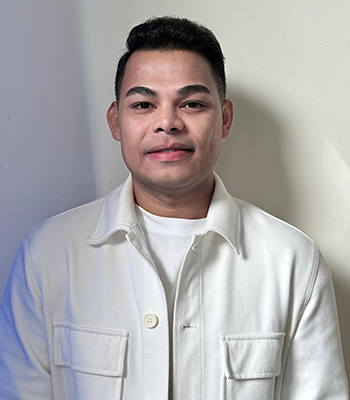
- Devy Dhian Cahyati
-
Devy Dhian Cahyati is a PhD student at the School of Social Sciences, UWA. She holds a scholarship from the Australian Government’s Research Training Program (RTP), and is a lecturer in the Department of Politics and Government, Universitas Gadjah Mada, Indonesia. Alongside her teaching responsibilities, she has conducted research in areas such as gender politics, natural resource governance, and local politics.
Currently, her doctoral research focuses on gender relations and social reproduction in everyday cassava production. This study explores women's involvement in cassava production and investigates how they navigate and challenge gender gaps in their daily practices. By examining these dynamics, her research aims to contribute to promoting gender equality in agricultural production, particularly by advocating for more inclusive and equitable practices for women in the cassava sector.
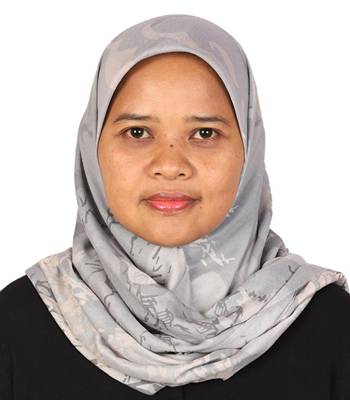
News
Co-located hubs key to battery industry competitiveness
A report has found that co-location and cooperation between industry and government were key to hub success
Read moreUWA researchers analyse impact of major rail project in Indonesia
Researchers have helped identify and measure how Indonesian communities will be impacted by a major rail project
Read moreTransmigration study finds benefits for second generation
Second-generation migrants tended to become dominant players in their adopted farming area
Read moreChinese migrants to Australia top pre-pandemic levels
Chinese migrants lured by jobs, property and improved economic ties
Read moreFor the Love of Bees
Some of the ways backyard beekeepers benefit commercial operations and vice-versa
Read more


